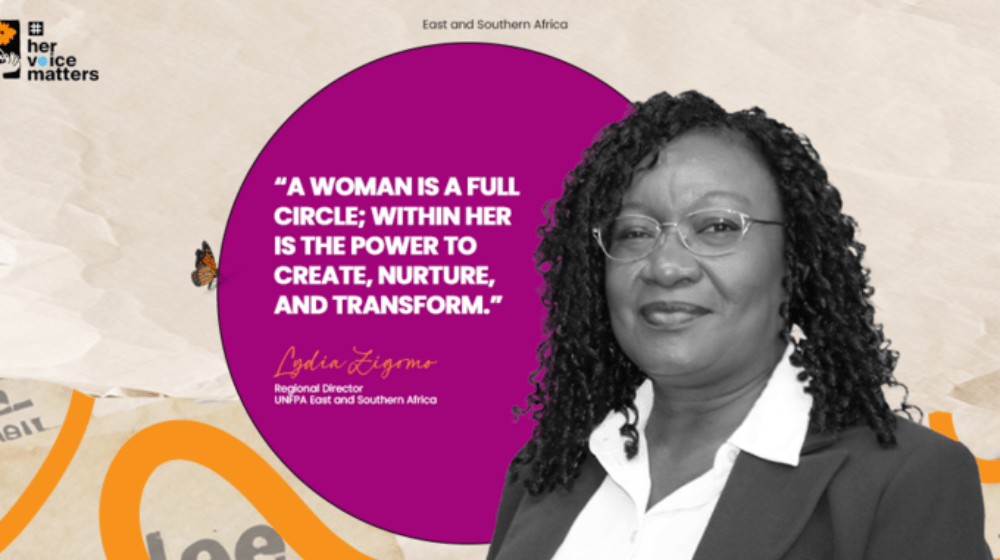Opinion editorial by Regional Director Lydia Zigomo, UNFPA East and Southern Africa
Long road in a short time: ending FGM calls for immediate action
“A woman is a full circle; within her is the power to create, nurture, and transform.”
This African saying celebrates the multifaceted strength of women, recognizing their capabilities not only to give life but also to cultivate and change the world around them. The proverb reminds me of Nia, a courageous female genital mutilation (FGM) survivor from Tanzania, whose journey epitomizes the essence of this adage. Nia, once a voiceless victim of FGM, transformed into a force within her community, rewriting her story and challenging the narrative that once oppressed her.
Today, as we observe the International Day of Zero Tolerance for Female Genital Mutilation, we are reminded that in this modern age, human rights violations still exists out in the open. FGM severely limits the opportunities for women and girls to exercise their rights and realize their full potential. It leaves scars, both visible and invisible, often leading to long-term physical and psychological trauma.
Nia's ordeal began in childhood, when she was subjected to a tradition that inflicted pain and robbed her of her autonomy. But her spirit remained unbroken. Through the support of local initiatives and persistence, Nia became an advocate for change. Today, she travels from village to village, sharing her story, educating communities, and empowering other girls and women. Her voice, once silenced, now echoes across communities, inspiring change and challenging age-old practices.
This year, under the theme “Her Voice. Her Future. Investing in Survivor-Led Movements to End Female Genital Mutilation,” we underscore the critical role of women-led and survivor-led organizations. These grassroots movements, exemplified by Nia's efforts, are essential in the fight against FGM. They offer an intimate understanding of the cultural and societal factors at play and are key in driving sustainable change.
In East and Southern Africa, the challenge of FGM is formidable. The UNFPA-UNICEF Joint Programme has been instrumental in supporting survivors like Nia and investing in their initiatives. However, the challenge is immense—in 2024 alone, nearly 4.4 million girls are at risk of FGM. To eliminate FGM by 2030, our progress needs to be tenfold of what it is today.
Our approach is multifaceted, involving cross-border collaborations and innovative solutions. Initiatives like the UNFPA FGM ‘We Scale’ Hacklab highlight the potential of technology, and community engagement in tackling FGM, as demonstrated by the success of the Smart Reporting and Response Application in Nigeria. These technology-driven tools have not only enhanced the reporting of gender-based violence but have also extended a lifeline to thousands of women and girls.
Despite these efforts, we face significant challenges, including the need for harmonized laws and enhanced inter-country cooperation. Efforts on regional legislation to combat FGM underscore the importance of a unified approach.
Nia's transformation from a survivor to an agent of change is inspirational. Her story is a powerful reminder of the resilience and strength inherent in those who have suffered and yet choose to fight back. In the spirit of Nia and millions like her, the march continues for all of us on this long road in a short time. Let us recognize that ending FGM is not just an objective; it is a pledge to future generations. It is a fight for justice, equality and human dignity. And it is a commitment to a world where every girl, like Nia, can live without fear, realize her dreams and reach her full potential.


